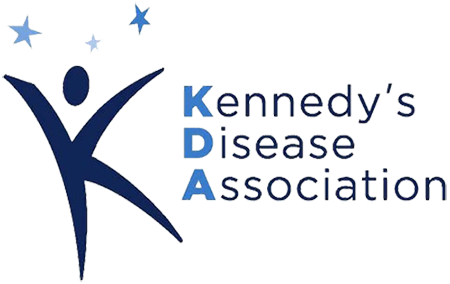The 2025 KDA Board of Directors & Scientific Review Board
The Kennedy's Disease Association is an all volunteer, non-profit corporation
KDA Officers and Board of Directors
-
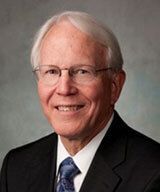 Terry Thompson - President
Terry Thompson - PresidentTerry has been active as a volunteer in the KDA for several years, serving as President since 2021. He is passionate about finding treatments and a cure for KD, a disease that directly affects his family. Terry’s professional experience includes 30 years of government service and 15 years with Booz Allen Hamilton. He also taught cyber security courses at Johns Hopkins University and the University of Maryland, Baltimore County. He has a BA and MA from Wayne State University in Detroit, Michigan, and a PhD from Georgetown University. Terry is an avid golfer and participates in the annual KD Golf Scramble in Magnolia, Texas.
-
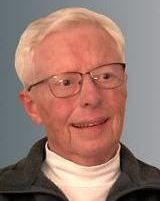 John Lauber - Treasurer
John Lauber - TreasurerJohn and his wife Debby, live in Milwaukee and are proud parents of three adult children and five grandchildren. He received the CPA designation in 1974. His career included time with a national public accounting firm and serving as the CFO of four companies in the Milwaukee area prior to founding a firm that provided fractional CFO services. John grew this business for 30 years. It continues today under new leadership as Lauber Business Partners.
John continues to work with clients a few days a week. Over the years, he has been an active volunteer, sharing his financial expertise with his church, schools, professional organizations, and nonprofits. John was diagnosed with Kennedy‘s disease in 2004. A muscle biopsy led to the diagnosis. John looks forward to working with the Kennedy’s Disease Association as they search for a cure. John enjoys spending time with family, boating at their lake home in Northwest Indiana, and watching Wisconsin sports teams.
-
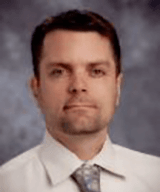 Jameson Parker - Vice President
Jameson Parker - Vice PresidentJameson first learned of KD after his older cousin had endured years of testing and uncertainty before receiving this rare diagnosis. Within a few years, in his early 30s, Jameson began to experience the symptoms of KD and received his own diagnosis. Soon after this he attended his first KD conference. His eyes were opened as many of the men with this diagnosis still lived active and fruitful lives.
Jameson has four children and is joyfully married to his sweetheart Heidi. He is involved in his church, enjoys competitive chess and loves to travel and spend time with his extended family. With 10 years in scientific research and development in industries such as space science and alternative energies, Jameson left his engineering career to embrace his calling as an educator. Jameson currently works as a high school physics teacher in an urban district in Connecticut. He has a B.S. in Physics, an M.S. in Education and is involved in multiple leadership positions within his school district.
-
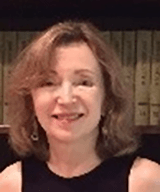 Kathy Thompson - Corporate Secretary
Kathy Thompson - Corporate SecretaryKathy became an active member of the KDA in 2010 when she volunteered to help plan the conference in San Diego. This led to her involvement in organizing KDA conferences ever since. A carrier and mother of two sons, she had a brother and at least one cousin who were victims of the disease.
A native of Pennsylvania, Kathy has a BA from the University of Pittsburgh and a master’s degree from the University of Toronto. During a 40-year career with the federal government, she worked as an intelligence analyst and executive manager as well as an instructor at the National Cryptologic School. She resides in Maryland with her husband, Terry, with whom she enjoys hiking, traveling, and taking advantage of a variety of cultural events and activities in music, art, and dance. She is also a voracious reader of contemporary literature. In addition to fiction, books on molecular biology and medical research now occupy the space on her nightstand.
As a Board member, she is committed to finding a cure for Kennedy’s Disease and extremely grateful to the founders of the organization as well as the dedicated cadre of doctors, researchers and staff at NIH and labs across the country who are leading the effort.
-
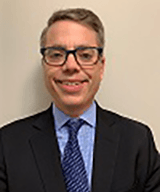 Steven Rittmaster
Steven RittmasterSteve was diagnosed with KD in 2017 and attended his first KDA conference later that year. He was fortunate to have been diagnosed by a neurologist who was aware of the rare disease and its onset symptoms. Steve has found the KDA to be an invaluable resource in learning as much as he can about the disease and the pursuit of a cure. He encourages all those afflicted with KD to attend the annual conference so that they too can feel that they are not alone in adjusting to the realities of living long, productive and active lives with KD. Steve has also visited and been inspired by the NIH and their dedicated doctors, nurses, therapists and researchers who study and treat KD patients. The NIH serves as a tremendous source of knowledge about the disease, the ongoing research to find viable treatments and developing helpful ways to live productively with the disease.
Steve was born and raised in New York City and still calls the Big Apple his home. He has been married to Jen for over twenty years and they have two college aged children. Steve continues to exercise regularly and enjoys taking long walks in Central Park with Jen. He also loves to fly fish. Steve is an avid sports fan and loves rooting for the New York Rangers.
Steve is a founding member of a small boutique law firm in New York specializing in commercial litigation with an emphasis on surety and construction law. He continues to actively practice law in state and federal courts throughout New York. Steve is a proud graduate of Brown University and St. John’s University School of Law.
-
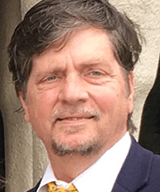 Dale Traxler
Dale TraxlerDale Traxler- In 2011, after 15 years of symptoms and misdiagnosis, a neurologist at Wake Forest Baptist Hospital accurately diagnosed my condition as Kennedy’s Disease. Although, a relief to know the name of the disease, I needed to know the next step to manage Kennedy’s Disease in my life. The Kennedy’s Disease Association has been a blessing to myself and my family. Through the information on the website, conferences, and contact with researchers at the NIH I have been able to gain much knowledge and information concerning Kennedy’s Disease.
Dale was born in Ohio in 1959 and lived there until 1980, when he married his high school sweetheart. That year Dale and his wife moved to North Carolina to raise a family, and they continue to reside there today. Dale cherishes his 3 grown children, and their mates, along with 8 precious grandchildren. Dale spends all the time he can with his children, grandchildren, and wife Kathy.
Dale started Private Label Manufacturing Inc. in 1985. PLM is a for-profit soap and supply company. He ran it until 2016 when his son and wife took over daily operations so he could retire and participate in the NIH drug study for 4 months. He also established a non-profit organization New Beginnings, to help those that are homeless and to partner with other disaster relief organizations.
Currently, Dale serves in his local church as a board member. In years past he served in the church mentoring young people as a leader in the youth group, taught Sunday school, and coaching. He also serves on the Carolina University board in Winston-Salem North Carolina. He also served several times on the Winston Salem Rescue Mission board.Dale is excited to serve on the Kennedy’s Disease Association Board. He looks forward to helping find a cure for future generations, better treatments, and quality of life for those currently affected by this debilitating disease.
-
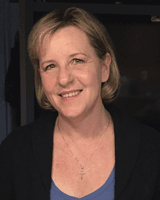 Joan Sorensen
Joan SorensenJoan had never heard of KD until she received a phone call from her mother in May of 2017. In the blink of an eye she learned that her Dad had KD, she was an obligate carrier and that her two adult sons were at risk of having KD. She immediately contacted the KDA and received invaluable support. She attended her first conference later that year and vowed to herself then that she would pay it forward and help KDA however she could.
Joan has a BSN from William Patterson University and worked at the Rehabilitation Institute of Chicago as a nurse therapist with quadriplegics and stroke patients. After having her sons she decided to be a stay at home Mom. She kept busy with volunteering at their schools and serving as president of various school groups. Joan has spent many many hours volunteering at church and for Christian ministries over the years. She was also president of the Central Virginia Handweavers Guild for five years.
Since 2020 Joan has been co-leading a carrier support group for the KDA which meets virtually once a month. She has learned that some women experience significant symptoms of KD so she is working to be an advocate for carriers to help them receive the medical attention, recognition and support that they deserve.
Joan has been happily married to her husband Jack for 42 years. Together they are enjoying retirement on their farm in Virginia. In her spare time she enjoys crafting, weaving, cooking, gardening and caring for her llama and goats. Her dream was to weave a blanket from her llama fiber, and she did.
-
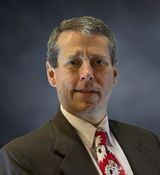 Lewis Myers
Lewis MyersLew brings a broad array of skills to the Kennedy’s Disease Association Board of Directors. An accountant by trade, having passed the CPA exam in 2004 and beginning his career with PriceWaterhouseCoopers, he worked his way through various Finance and Operations positions with several fortune 500 organizations, including Baxter International, Inc. Subsequently, Lew began designing and implementing patient support services, specializing in medication compliance, training and reimbursement support for patients with long term chronic diseases.
Functioning in a leadership role for a pharmacy benefit manager and several pharmaceutical companies, his goal has always been to help patients live a more normal life, allowing them to enjoy their families, careers and social activities by making it easier to manage their long term, chronic diseases.
In 2012, Lew and his wife, Mimi, purchased a Right at Home franchise as the next step in their career evolution, hoping to help seniors and disabled individuals maintain and improve their quality of life by providing assistance in their home. Right at Home thrived under their leadership for ten years. Lew and Mimi sold the business to a colleague and retired in 2023.While always suspecting he had Kennedy’s Disease, given his familial history and chronic essential tremor, he received his official diagnosis in June of 2021.
Lew and Mimi reside in Annapolis, Maryland. They have three grown children, two sons and a daughter, residing in Los Angeles, Hawaii and Chicago.
-
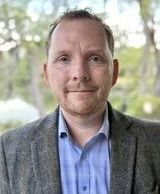 Nicholas Holdgate, M.D.
Nicholas Holdgate, M.D.Nicholas Holdgate M.D., a community-based Rheumatologist, resides in Charleston, South Carolina, with his wife and two children. In 2022, he was diagnosed with Kennedy’s disease after experiencing worsening tremors, cramps, spasms, and muscular fatigue. Upon diagnosis, Nick actively engaged with the Kennedy’s Disease Association (KDA) and diligently sought to quickly grasp the current understanding of the disease. He accomplished this by watching previous KDA annual meeting lectures and meticulously reviewing the latest published research and guidelines.
Originally from Nantucket, Massachusetts, Nick’s academic journey began at the College of Charleston, where he pursued a degree in physics, with minors in mathematics, and engineering. After completing his undergraduate training and research, he embarked on a career at NASA’s Goddard Space Flight Center in Maryland. Subsequently, he returned to Charleston to pursue medical school at the Medical University of South Carolina, where he also completed his internship and residency in Internal Medicine. His medical training concluded with a fellowship in Rheumatology at Duke University Medical Center.
As a practicing physician, Nick dedicates his time to providing community-based care, actively participating as an investigator in disease registries and clinical trials. Driven by his passion for understanding Kennedy’s disease, Nick strives to comprehend the underlying mechanisms of this disease affecting his own body. Additionally, he critically evaluates potential interventions and treatments that may alleviate symptoms, delay disease progression, or even lead to a cure.
Attending the annual KDA meetings, collaborating with the KDA, and engaging with the Kennedy’s Disease research community have proven invaluable sources of insight, enjoyment, and fulfillment for Nick. These experiences have enriched his understanding of the disease and provided him with valuable insights into the potential avenues for research and treatment.
-
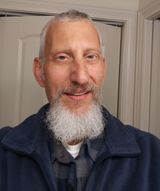 Ronald (Ronnie) Moffett
Ronald (Ronnie) MoffettAfter many years of displaying Kennedy’s Disease related symptoms and looking for a diagnosis, He was diagnosed in 2011 with Kennedy’s Disease. Ronnie calls Arkansas home. His interests include computer activities, volunteering, reading, bible study, watching professional and collegiate sports - "Woo, Pig Sooie!".
KDA Scientific Review Board
-
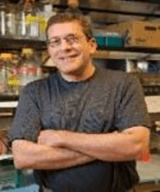 Dr. Andrew P. Lieberman
Dr. Andrew P. LiebermanChair University of Michigan Medical School
Dr. Lieberman is the Gerald D. Abrams Professor in the Department of Pathology and Director of Neuropathology at the University of Michigan. Dr. Lieberman received his BS from Duke University and his MD, PhD from the University of Maryland Medical School. He completed residency training in Anatomic Pathology and fellowship training in Neuropathology at the University of Pennsylvania. He trained as a research fellow with Dr. Kenneth Fischbeck at the Neurogenetics Branch NINDS, NIH, and then joined the University of Michigan Medical School faculty in 2001. Dr. Lieberman’s research has focused on the mechanism of neurodegeneration in inherited neurological disorders. His laboratory uses cell culture and mouse models to explore the pathogenesis of Kennedy’s disease and Niemann-Pick C, a lysosomal storage disease resulting from impaired lipid trafficking.
-
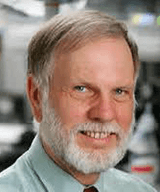 Dr. Kenneth Fischbeck
Dr. Kenneth FischbeckChair Emertus National Institute of Health
Dr. Fischbeck is a Distinguished Investigator working in the Neurogenetics Branch of NIH. The purpose of the Neurogenetics Branch is to investigate the causes of hereditary neurological diseases, with the goal of developing effective treatments for these disorders. Particular areas of research interest in the Fischbeck lab have included Kennedy's disease and other polyglutamine expansion diseases, spinal muscular atrophy, Charcot-Marie-Tooth disease, muscular dystrophy, and other hereditary motor neuron diseases. A genetic outreach program is intended to identify and characterize patients and families with hereditary neurological diseases. The disease mechanisms are studied and potential treatments are evaluated in cell culture and other model systems. Clinical trials have been done for Duchenne muscular dystrophy and Friedreich's ataxia as well as Kennedy's disease. Efforts are currently underway to develop new clinical and quality of life measures for Kennedy’s disease therapeutic trials. Dr. Fischbeck received A.B. and A.M. degrees from Harvard University and an M.D. degree from Johns Hopkins. After a medical internship at Case Western Reserve University and a neurology residency at the University of California in San Francisco, he did postdoctoral research on muscular dystrophy at the University of Pennsylvania. In 1982 he joined the faculty in the Neurology Department at the University of Pennsylvania Medical School, and in 1998 he joined NIH as Chief of the Neurogenetics Branch. Dr. Fischbeck received the Cotzias Award from the American Academy of Neurology and the Jacoby Award from the American Neurological Association, and he was elected to the National Academy of Medicine.
-
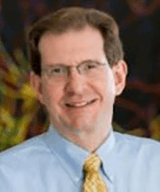 Dr. Albert La Spada
Dr. Albert La SpadaUniversity of California, Irvine
Dr. La Spada is a Distinguished Professor and Director of the UCI Institute of Neurotherapeutics, which he founded. He is also Associate Dean for Research in the School of Medicine. Dr. La Spada graduated Summa Cum Laude from the University of Pennsylvania with a degree in Biology in 1986. While a M.D. - Ph.D. student at the University of Pennsylvania School of Medicine, he identified the cause of X-linked spinal & bulbar muscular atrophy (SBMA) as an expansion of a trinucleotide repeat in the androgen receptor gene. As the first disorder shown to be caused by an expanded repeat tract, this discovery of a novel type of genetic mutation led to the emergence of a new field of study. After completing training as a Clinical Genetics fellow and a Howard Hughes Medical Institute Physician Postdoctoral Fellow, Dr. La Spada joined the faculty at the University of Washington Medical Center in 1998, and became a Professor of Laboratory Medicine, Medicine (Medical Genetics), Pathology, and Neurology (Neurogenetics). In 2009, he was appointed Professor and Division Head of Genetics in Pediatrics, Cellular & Molecular Medicine, and Neurosciences at the University of California, San Diego, and was a founding faculty member and Associate Director of the UCSD Institute for Genomic Medicine. Dr. La Spada then moved to North Carolina where he became the founding Director of the Duke Center for Neurodegeneration & Neurotherapeutics and served as Distinguished Professor of Neurology, Neurobiology, and Cell Biology, holding the Lincoln Financial Endowed Chair at the Duke University School of Medicine. In 2020, he joined the faculty of the University of California Irvine as Distinguished Professor of Pathology & Laboratory Medicine and Neurology.
-
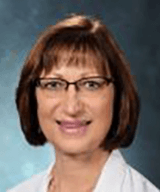 Dr. Diane Merry
Dr. Diane MerryThomas Jefferson University
Dr. Merry is a Professor in the Department of Biochemistry and Molecular Biology and Vice Chair, Faculty Development and Engagement at Thomas Jefferson University in Philadelphia. She is also a member of Jefferson’s Vickie & Jack Farber Institute for Neuroscience and Chair of its Scientific Advisory Board. Dr. Merry’s research uses novel cell and mouse models to understand the molecular pathogenesis of SBMA, first, by determining the role of AR structural and functional domains in DHT-dependent AR misfolding, aggregation, and toxicity and second, by determining pathogenic mechanisms through the identification of altered AR protein-protein interactions. These studies are designed to understand how motor neurons and muscle cells respond to the accumulation of misfolded AR protein and to identify therapeutic opportunities in SBMA. Dr. Merry organized and chaired the first-ever international SBMA research conference in 2021.
-
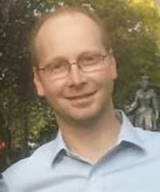 Dr. Pietro Fratta
Dr. Pietro FrattaUniversity College, London (UCL)
Professor Pietro Fratta is an MRC senior clinical fellow and MNDA Lady Edith Wolfson fellow at the UCL Queen Square Institute of Neurology and honorary consultant neurologist at the National Hospital for Neurology and Neurosurgery in London, United Kingdom. His research focuses on molecular mechanisms and biomarkers of motor neuron disease (MND) and Kennedy’s disease, also known as spinal bulbar muscular atrophy (SBMA). His clinical activity is within the MND group at NHNN. He has a specific interest in MND genetics and Kennedy’s disease and runs an MND Genetics clinic and a Kennedy’s disease clinic, the only dedicated clinic to this disease in the UK. He obtained his PhD at the UCL Institute of Neurology working on models of motor neuron disease. He previously trained in Neurology with a focus on neuromuscular disorders, at the University of Milan and at the University of Southern California (USC).
-
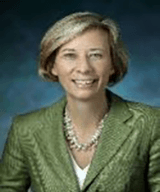 Dr. Charlotte Sumner
Dr. Charlotte SumnerJohn Hopkins University School of Medicine
Dr. Sumner is a Professor of Neurology and Neuroscience at Johns Hopkins University School of Medicine. She received her B.A. from Princeton University and M.D. from the University of Pennsylvania. She completed internal medicine internship and neurology residency at the University of California San Francisco and further clinical and scientific fellowship training at Johns Hopkins and the National Institutes of Health (National Institute of Neurological Disorders and Stroke). Dr. Sumner cares for patients with genetically-mediated neuromuscular diseases and co-directs the Johns Hopkins Muscular Dystrophy Association Care Center, the Spinal Muscular Atrophy (SMA), and the Charcot-Marie-Tooth (CMT) clinics, which deliver multidisciplinary clinical care, engage in international natural history studies, and provide cutting edge therapeutics. Dr. Sumner’s laboratory research focuses on the genetic and cellular pathogenesis of motor neuron and peripheral nerve disorders with particular attention to identification of disease genes, characterization of molecular and cellular disease mechanisms, and preclinical development of therapeutics. Her work has been recognized by elected membership in the American Society of Clinical Investigators and the American Association of Physicians. She serves as an advisor to multiple SMA, CMT, and peripheral neuropathy nonprofit foundations, government, and private companies. She is the coeditor of the only comprehensive book on SMA: Spinal Muscular Atrophy Disease Mechanisms and Therapy.
-
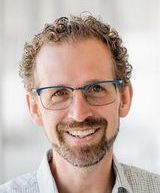 Dr. Alexander McCampbell
Dr. Alexander McCampbellGlobal Head of Neuroscience and Rare Disease Research, Roche
Alexander McCampbell heads the research efforts in neuroscience and rare diseases at F. Hoffmann-La Roche in Basel. Alex is an experienced drug developer with over 15 years of industry experience. He has advanced eight agents into the clinic with a range of modalities, including antibodies, small molecules, and antisense oligonucleotides, in disease areas including amyotrophic lateral sclerosis, Alzheimer’s disease, and spinal muscular atrophy (SMA). These efforts helped enable both nusinersen (SMA) and tofersen (SOD1) to reach the market, with additional drug candidates in proof of concept trials. He has more than 30 publications spanning nearly two decades and multiple patents, and he has participated on scientific advisory boards and NIH study sections. Alex received his PhD in neuroscience from the University of Pennsylvania in the lab of Dr. Kurt Fischbeck and completed his post-doctoral training at Harvard Medical School.
-
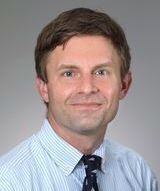 Christopher Grunseich
Christopher GrunseichNational Institutes of Health, Bethesda, MD.
Chris Grunseich is a physician-scientist specializing in inherited neuromuscular diseases at the NIH Campus in Bethesda, MD. His lab focuses on studying markers of muscle and motor neuron pathology that can be used for detecting disease progression and evaluating efficacy in clinical studies. Dr. Christopher Grunseich completed his undergraduate studies at Brown University and went on to receive his M.D. from SUNY Stony Brook School of Medicine in 2006. Dr. Grunseich completed neurology residency at Georgetown University and a neurogenetics fellowship at NINDS. He became a Lasker clinical research scholar in 2024 and is currently a Tenure Track Investigator at NINDS. Dr. Grunseich oversees an active clinical research program at the NIH Clinical Center. A main focus of his lab is understanding the disease mechanisms of two progressive forms of motor neuron disease: spinal and bulbar muscular atrophy (SBMA) and amyotrophic lateral sclerosis type 4 (ALS4). The lab seeks to understand how molecular dysfunction in these two diseases results in degeneration and develop new approaches to treatment. Establishing disease specific measures of toxicity in the muscle or spinal cord would allow for improved understanding of the disease mechanism and better approaches to evaluate therapeutic engagement at the target tissue.
-
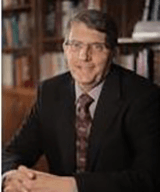 Ed Meyertholen
Ed MeyertholenPatient Liason to SRB
Ed Meyertholen is a person living with Kennedy’s Disease. He went to Boston College where he graduated with a Biology/Chemistry major. He then attended graduate school at Purdue University and received his Ph.D. in biology in 1982. After holding faculty positions at several universities, he settled in Austin, TX where he taught Cell and Molecular Biology, Genetics and Physiology at Austin Community College. In 2005, Ed was awarded a sabbatical leave and was able to do research on Kennedy's Disease in the lab of Dr. Diane Merry at Thomas Jefferson University in Philadelphia. In 2012, Ed accepted a position as Assistant Dean and Director of Pre-Health Programs at Georgetown College, Georgetown University, Washington, DC. Now retired, Ed is well-known to the KD community for his informative and entertaining lecture on the biology of Kennedy’s Disease at KDA’s annual conference.
-
 Nicholas Holdgate, M.D
Nicholas Holdgate, M.DPatient Liason to SRB
Nicholas Holdgate M.D., a community-based Rheumatologist, resides in Charleston, South Carolina, with his wife and two children. In 2022, he was diagnosed with Kennedy’s disease after experiencing worsening tremors, cramps, spasms, and muscular fatigue. Upon diagnosis, Nick actively engaged with the Kennedy’s Disease Association (KDA) and diligently sought to quickly grasp the current understanding of the disease. He accomplished this by watching previous KDA annual meeting lectures and meticulously reviewing the latest published research and guidelines.
Originally from Nantucket, Massachusetts, Nick’s academic journey began at the College of Charleston, where he pursued a degree in physics, with minors in mathematics, and engineering. After completing his undergraduate training and research, he embarked on a career at NASA’s Goddard Space Flight Center in Maryland. Subsequently, he returned to Charleston to pursue medical school at the Medical University of South Carolina, where he also completed his internship and residency in Internal Medicine. His medical training concluded with a fellowship in Rheumatology at Duke University Medical Center.
As a practicing physician, Nick dedicates his time to providing community-based care, actively participating as an investigator in disease registries and clinical trials. Driven by his passion for understanding Kennedy’s disease, Nick strives to comprehend the underlying mechanisms of this disease affecting his own body. Additionally, he critically evaluates potential interventions and treatments that may alleviate symptoms, delay disease progression, or even lead to a cure.
Attending the annual KDA meetings, collaborating with the KDA, and engaging with the Kennedy’s Disease research community have proven invaluable sources of insight, enjoyment, and fulfillment for Nick. These experiences have enriched his understanding of the disease and provided him with valuable insights into the potential avenues for research and treatment.
